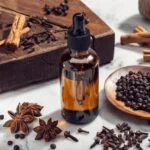Are you wondering, “Should I get a deep tissue massage or aromatherapy?” Both of these therapeutic treatments offer unique benefits that cater to different needs and preferences. Deep tissue massage focuses on targeting muscle tension, providing pain relief, and improving circulation, making it ideal for individuals seeking physical relaxation and healing. On the other hand, aromatherapy utilizes essential oils to promote stress relief, enhance mood, and induce relaxation, appealing to those looking for a holistic approach to well-being.
Deep tissue massage involves applying firm pressure to specific points on the body, kneading muscles, and incorporating stretching techniques to release tension and improve mobility. This powerful form of massage therapy is recommended for individuals with chronic pain, muscle injuries, or those in need of deeper relaxation.
In contrast, aromatherapy harnesses the natural scents of essential oils through methods like diffusing or topical application. By inhaling these fragrances or applying them directly on the skin, individuals can experience mental and emotional benefits such as reduced anxiety and improved sleep quality.
When deciding between deep tissue massage and aromatherapy, it is crucial to consider your physical health condition, personal preferences, and specific goals for the session. Whether you seek relief from physical discomfort or aspire to enhance your overall well-being through emotional support, understanding the differences between these therapies can help you make an informed decision that aligns with your needs.
Keep reading to explore the benefits of deep tissue massage and aromatherapy in detail before choosing the treatment that best suits you.
Benefits of Deep Tissue Massage
Deep tissue massage is a specialized massage technique that focuses on realigning deeper layers of muscles and connective tissue. One of the key benefits of deep tissue massage is its ability to relieve muscle tension. By targeting the inner layers of your muscles, this type of massage can help break up adhesions and knots that are causing discomfort or pain. This can lead to improved flexibility and reduced stiffness in the affected areas.
In addition to relieving muscle tension, deep tissue massage is also effective for pain relief. The deep pressure applied during the massage can help alleviate chronic pain conditions such as lower back pain, neck and shoulder pain, and more. By targeting specific areas of tension, deep tissue massage can provide long-lasting relief from soreness and discomfort.
Another significant benefit of deep tissue massage is its ability to improve circulation throughout the body. The firm pressure applied during the massage helps stimulate blood flow to the muscles, which can promote healing and reduce inflammation. Improved circulation not only aids in recovery from injuries but also helps flush out toxins from the body, leaving you feeling rejuvenated and revitalized.
| Benefit | Description |
|---|---|
| Relieving Muscle Tension | By targeting deeper layers of muscles, it helps break up adhesions and knots. |
| Pain Relief | The deep pressure applied alleviates chronic pain conditions like lower back pain. |
| Improved Circulation | Stimulates blood flow which promotes healing, reduces inflammation, and flushes out toxins. |
When deciding between a deep tissue massage or aromatherapy, consider your specific goals for the session. If you are looking for targeted relief from muscle tension or chronic pain, a deep tissue massage may be more beneficial. On the other hand, if stress relief, relaxation, or mood improvement is what you seek, then aromatherapy could be a better choice for you.
Ultimately, whether you should opt for a deep tissue massage or aromatherapy depends on your individual needs and preferences. Both therapies offer unique benefits that can enhance your overall well-being. It’s essential to communicate with your therapist about your goals and expectations to ensure you receive the most suitable treatment for your body and mind.
Benefits of Aromatherapy
Aromatherapy is a holistic healing treatment that uses natural plant extracts – known as essential oils – to promote health and well-being. These aromatic essential oils are often used in combination with massage therapy to enhance the overall experience and benefits of the treatment. When considering whether to opt for a deep tissue massage or aromatherapy, it ultimately comes down to your specific needs and preferences.
One of the key benefits of aromatherapy is stress relief. Certain essential oils like lavender, chamomile, and rosemary have calming properties that can help reduce anxiety and promote relaxation. In today’s fast-paced world, where stress is commonplace, incorporating aromatherapy into your wellness routine can be a great way to unwind and de-stress after a long day. The soothing scents can also help improve your mood by triggering positive emotions and feelings of comfort.
In addition to stress relief and improved mood, aromatherapy is also known for its ability to aid in relaxation. Whether you’re looking to wind down at the end of the day or create a tranquil atmosphere during your massage session, the gentle fragrances from essential oils can create a serene environment that promotes deep relaxation.
Through inhalation or topical application, these aromatic oils work on multiple levels – physically, emotionally, and mentally – to help you achieve a state of calmness and peace.
| Aromatherapy Benefits | Details |
|---|---|
| Stress Relief | Essential oils like lavender, chamomile, and rosemary can help reduce anxiety and promote relaxation. |
| Improved Mood | The soothing scents trigger positive emotions and feelings of comfort. |
| Relaxation | Aromatherapy creates a serene environment that promotes deep relaxation through inhalation or topical application. |
Considerations Before Choosing
Before diving into the decision of whether to get a deep tissue massage or aromatherapy, it is important to consider several factors that can influence your choice. Your physical health should be the foremost consideration.
If you have any pre-existing health conditions or injuries, it is crucial to consult with a healthcare provider before opting for either type of therapy. Deep tissue massage, for example, may not be suitable for individuals with certain medical issues such as inflammation or recent surgeries.
Next, personal preferences play a significant role in choosing between deep tissue massage and aromatherapy. Some people prefer the intense pressure and targeted muscle work of a deep tissue massage, while others may find the gentle touch and soothing scents of aromatherapy more appealing. It is essential to assess what type of therapy resonates with you personally, as this will ultimately enhance your overall experience and satisfaction.
Additionally, defining specific goals for the session can help guide your decision-making process. Are you looking to alleviate chronic muscle tension and pain? Or are you in need of stress relief and relaxation? Understanding what outcomes you hope to achieve from the therapy session can help determine whether you should opt for a deep tissue massage or aromatherapy. Making clear objectives beforehand can also assist your therapist in customizing the treatment to address your individual needs effectively.
- Consider consulting a healthcare provider if you have any pre-existing health conditions or injuries
- Assess your personal preferences regarding pressure intensity and scent preference
- Define specific goals for the session such as pain relief or stress reduction
Deep Tissue Massage Techniques
When deciding between a deep tissue massage and aromatherapy, it is essential to understand the techniques involved in each therapy to better cater to your specific needs and preferences. Deep tissue massage focuses on targeting deeper layers of muscles and connective tissue to release tension and improve circulation. Here are some key techniques commonly used in a deep tissue massage session:
- Pressure Points: Therapists apply firm pressure on specific points of the body to release tightness and promote relaxation. This technique can help alleviate chronic muscle pain and stiffness.
- Muscle Kneading: A common technique in deep tissue massage involves kneading and squeezing the muscles to improve blood flow, break up knots, and reduce muscle tension. This can help with flexibility and range of motion.
- Stretching: Incorporating stretching into a deep tissue massage session can aid in lengthening muscles, increasing flexibility, and reducing the risk of injury. Stretching can also help improve posture and overall physical performance.
Whether you are dealing with chronic pain, muscle tightness, or recovering from an injury, choosing a deep tissue massage over aromatherapy may be more beneficial. The targeted pressure points, muscle kneading, and stretching techniques used in deep tissue massage can address specific musculoskeletal issues effectively.
It is important to communicate your preferences, health concerns, and goals with your massage therapist before the session begins. By understanding the various techniques involved in a deep tissue massage, you can make an informed decision on whether this therapy aligns with your needs should i get a deep tissue massage or aromatherapy.
Aromatherapy Techniques
When considering aromatherapy, one of the key aspects to focus on is the selection of essential oils. Different essential oils offer various benefits, so it is crucial to choose the ones that align with your specific needs and goals.
For example, lavender oil is often used for its calming and relaxing properties, while peppermint oil is known for its invigorating and energizing effects. Researching the benefits of each essential oil can help you pick the most suitable ones for your aromatherapy session.
Once you have selected your essential oils, the next step is determining the best method for diffusing them. Diffusing methods include using a diffuser device, adding a few drops to a bowl of hot water, or even mixing them with a carrier oil for topical application.
Each diffusing method can impact how effectively the essential oils disperse into the air and provide their therapeutic effects. Experimenting with different diffusing techniques can help you find the one that works best for you and maximizes the benefits of aromatherapy.
In addition to diffusing essential oils, another consideration in aromatherapy is whether to inhale them or apply them topically. Inhalation involves breathing in the aromatic molecules released by the essential oils, which can have a direct impact on your mood and emotions.
On the other hand, topical application involves diluting essential oils with a carrier oil and applying them to your skin, allowing for absorption through massaging or targeted application on specific areas. Understanding the differences between inhalation and topical application can help you decide which method suits your preferences and goals for aromatherapy session.
Which One to Choose
When deciding between a deep tissue massage or aromatherapy, it is essential to match your needs to the benefits of each therapy. Deep tissue massage is known for its ability to relieve muscle tension, provide pain relief, and improve circulation.
This type of massage targets the deeper layers of muscle and fascia, making it an excellent choice for individuals experiencing chronic pain or tightness in specific areas. If you are dealing with muscle soreness from intense workouts or have lingering muscle tension, a deep tissue massage might be the ideal option for you.
On the other hand, aromatherapy focuses on using essential oils to promote relaxation, reduce stress, and enhance mood. The inhalation or topical application of these oils can have a profound impact on both physical and emotional well-being.
If you find yourself often feeling stressed, anxious, or in need of a mood boost, aromatherapy could be the perfect choice for you. By carefully selecting specific essential oils that cater to your needs, you can create a personalized aromatherapy experience that targets your unique concerns.
Physical Health Considerations
Before choosing between a deep tissue massage and aromatherapy, it is crucial to consider your physical health. If you have any underlying medical conditions or injuries, it is advisable to consult with a healthcare provider before scheduling either type of therapy.
Deep tissue massage may not be suitable for individuals with certain health issues like blood clotting disorders or recent surgeries. Aromatherapy, on the other hand, generally has fewer contraindications but may still require caution for those with sensitivities to specific essential oils.
Personal Preferences and Goals
Your personal preferences and goals for the session should also play a significant role in determining whether you opt for a deep tissue massage or aromatherapy. If you prefer more intense pressure and targeted muscle work during your session, deep tissue massage might be more appealing to you.
Alternatively, if you enjoy gentle relaxation techniques and the soothing effects of aromatic scents, aromatherapy could better suit your preferences. Consider what outcomes you hope to achieve from the therapy session – whether it’s pain relief, stress reduction, improved flexibility, or simply some self-care time – before making your decision between deep tissue massage and aromatherapy.
Conclusion
In conclusion, when deciding between a deep tissue massage and aromatherapy, it is essential to consider your specific needs and goals for the session. If you are looking to address muscle tension, relieve pain, or improve circulation, then a deep tissue massage may be the better option for you. On the other hand, if your main objective is stress relief, mood improvement, or relaxation, then aromatherapy could be more suitable.
Both deep tissue massage and aromatherapy offer unique benefits that can positively impact your physical and mental well-being. It ultimately comes down to understanding what you hope to achieve from the therapy session and choosing the modality that aligns best with your objectives. Whether you decide to go for a deep tissue massage or opt for aromatherapy, both therapies have the potential to enhance your overall health and wellness.
Before making your decision on whether to get a deep tissue massage or aromatherapy, it would also be beneficial to consult with a qualified therapist who can provide guidance based on your individual needs. By considering your physical health, personal preferences, and specific goals for the session, you can make an informed choice that will lead to a rewarding experience.
Remember that both deep tissue massage and aromatherapy have their own merits – all you need to do is determine which one resonates most with what you are looking to achieve in this particular moment of self-care.
Frequently Asked Questions
Should I Get Deep Tissue or Relaxing Massage?
The choice between a deep tissue or relaxing massage depends on your specific needs and preferences. Deep tissue massages are ideal for targeting knots and muscle tension, while relaxing massages are great for stress relief and overall relaxation.
Are Aromatherapy Massages Worth It?
Aromatherapy massages can be worth it if you enjoy the benefits of essential oils and their therapeutic properties. The added scent element can enhance the overall massage experience and promote relaxation, stress relief, and even help with various health conditions.
What Is the Most Pleasurable Type of Massage?
The most pleasurable type of massage is subjective and varies from person to person. Some may find deep tissue massages pleasurable due to the release of tension, while others may prefer Swedish massages for their gentle techniques. Ultimately, the most pleasurable type of massage is one that meets your specific needs and leaves you feeling relaxed and rejuvenated.

Are you looking for a natural way to improve your health and wellbeing?
If so, aromatherapy may be the answer for you.





